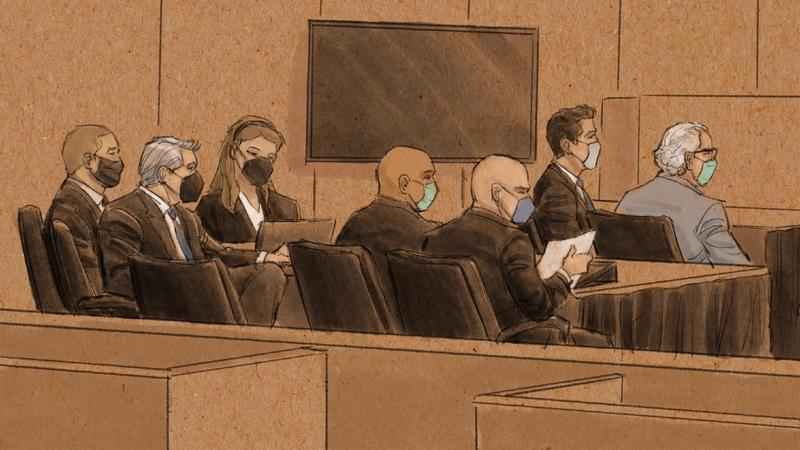Opening statements in federal trial of 3 former MPD officers scheduled for Monday
[anvplayer video=”5084902″ station=”998122″]
It was a quiet day of closed-door hearings in the federal trial of three former Minneapolis Police officers facing civil rights charges in the death of George Floyd.
J Alexander Kueng, Thomas Lane and Tou Thao each face one count of willfully depriving George Floyd of the right to not be deprived of liberty without due process of law.
“The defendants saw George Floyd lying on the ground in clear need of medical care, and willfully failed to aid Floyd, thereby acting with deliberate indifference to a substantial risk of harm to Floyd," the criminal complaint says.
Kueng and Thao also face a second count for depriving Floyd of the right to be free from unreasonable seizure. The criminal complaint says they, “…willfully failed to intervene to stop Defendant Chauvin’s use of unreasonable force. This offense resulted in bodily injury to, and the death of, George Floyd.”
Jurors will be sworn in on Monday morning.

Tou Thao (left), J Alexander Kueng (middle) and Thomas Lane (right) and their attorneys appear in federal court on Tuesday, Jan. 11, 2022.[Cedric Hohnstadt Illustration]
All 18 jurors will hear the case but only 12 will deliberate. The other six jurors are alternates.
“We tell the jurors the entire time, you need to keep an open mind until such time as you’ve heard all of the evidence in this case and you’ve heard the closing arguments from the lawyers and it’s time to deliberate,” said Erica MacDonald, a partner at Faegre Drinker law. “You can’t even talk about it with your family because as you start to discuss matters, you might start forming an opinion.”
MacDonald has previously served as a U.S. Attorney for the District of Minnesota and as a District Court judge.
She explained each legal team will have the opportunity to present an opening statement.
“It’s not time for argument, it’s simply time to frame what is going to happen with respect to the witnesses and what they believe the evidence will prove,” said MacDonald.
The legal teams will be allowed 30-40 minutes each to present their opening statements.
“A lot of times in a situation like this, prosecutors will have visuals to try to help walk the jury through what they’re talking about,” said Rachel Moran, a former defense attorney and University of St. Thomas School of Law professor. “It will take some time to identify the facts, the evidence they plan to show about all three defendants, so I would tend to expect a very deliberate opening statement from the U.S. Attorney.”
She added, “They are going to want the jury to have a clear understanding of which officers are facing which charges and what those charges even mean because I think there is a lot of confusion around that point.”
Moran expects each of the defense teams will choose to give an opening statement.
“We don’t know is whether the attorneys are working collaboratively at all or trying to shorten up their theory, I would expect a little bit but not entirely because they may even point the finger at each other,” she said.
Mark Osler, a former federal prosecutor and University of St. Thomas School of Law professor, said there will likely be more focus on the former officers’ duty rather than the cause of Floyd’s death.
“We’re going to see probably some similarities between the strategies of the defendants — it was Derek Chauvin who was in charge, for example,” said Osler. “We’re also going to see important differences between the defendants I suspect, for example officer Lane is going to be able to say ‘Hey, I asked twice if we should turn him over.’”
He expects Kueng and Lane will testify on their own behalf during the trial. Osler believes it’s also possible the jury might hear from Derek Chauvin due to his decision to plead guilty the civil rights charges he faced.
“One of the things that I thought was fascinating about the plea agreement between the government and Derek Chauvin […] was that they limit basically what he can say about the other defendants,” said Osler. “For example, one of the factual agreements that’s in that contract is, ‘The defendant did not hear or observe Officer Lane press the point about rolling Floyd over on his side, and did not hear or observe Officer Lane say or do anything else to do anything else to try to get Officer Kueng and the defendant off of Floyd’, so they’re trying to cabin what Chauvin might say if perchance he were called to testify in this case.”